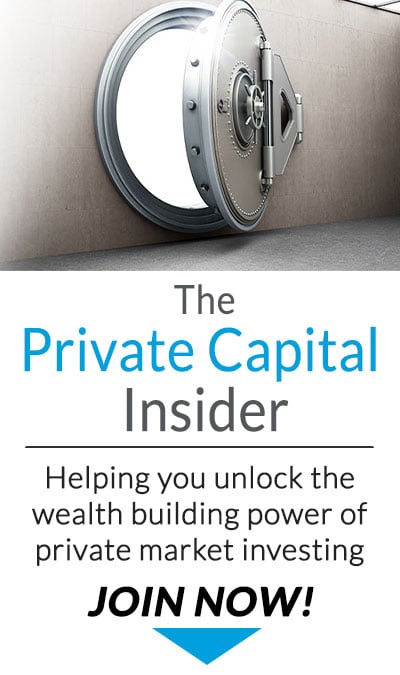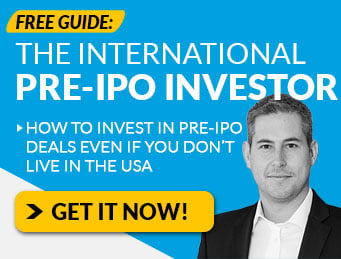While everyone else seems to be riding the AI Hype/FOMO machine, as the tech bull market continues to pick up steam…
Here’s the story you haven’t heard: one of Wall Street’s favorite financing formats – Private Investment in Public Equity (PIPEs) – earns an abnormal return of 19.7% compared to 3.7% for market investors, over an average holding period of 384 days.
Not to be confused with alpha, abnormal returns refer to unusually large profits or losses, generated by a given investment or portfolio over a specified period, and are essential in determining a security or portfolio’s risk-adjusted performance, when compared to the overall market or a benchmark index.
That’s why today, we’re going to take a look at some of the academic research on PIPEs, who the biggest players in the PIPE financing space are, and how retail investors can participate in this normally “off-limits” investment product.
Let’s dive in,
-Equifund Publishing
Trends in PIPE Financings
Let’s kick things off by looking at some of the data about PIPEs.
Since the first PIPE was launched in the late 1980’s, we’ve seen some rather remarkable growth in this financing gimmick.
According to Sagient Research, the PIPE market grew from 114 transactions worth ~$1.3b in 1995, to 1,343 transactions worth ~$28bn in 2006, outnumbering the more traditional way public companies raised capital through Seasoned Equity Offerings.

According to the law firm Mayer Brown, 2006-2008 proved to be a “top” in the PIPE market with fundraising reaching an all time high in 2008; 2009 – 2020 have proven to be relatively consistent in terms of transaction volume and fundraising activity.

But as we turn the corner into the 2020s, the PIPE market underwent a bit of a resurgence as Special Purpose Acquisition Companies (“SPACs”) became a thing.

While companies of all sizes have used PIPEs to raise money, PIPE deals have emerged as a vital financing source for small public companies.

Done correctly, a PIPE offers tremendous advantages to an issuer, and can be an efficient and cost-effective way to raise money.
However, PIPEs do have risks, and can be exploited at the Issuer’s peril if not properly structured.
Why? Because if the “abnormal return” offered by PIPEs isn’t considered true alpha, it means the outperformance is at the expense of the Issuer (and by extension, the common stockholders).
Let’s take a look at how these structures can be exploited…
And why we think the Retail PIPE creates an interesting value proposition for both issuers and investors, by simply cutting out the middleman and reducing the overall fee drag.How Bankers Structure PIPEs (and why they can be highly predatory)
On the surface, the value proposition of a PIPE is almost the same as a high-risk, venture capital-style investment.
As a result of the discounted purchase price, PIPE investors earn substantially higher returns than investors who buy and sell stocks of PIPE issuers or comparable firms at market prices.
Over the year following the issuance, PIPE investors average a 12.1% buy-and-hold abnormal return, compared to −5.2% for investors who buy and sell the issuers’ stocks at market prices.
However, there is substantial skewness in the distribution of returns, with the median PIPE investment earning an abnormal return of just 1.7% over the year after issuance.
PIPE returns are skewed because the returns of the issuing firms’ stocks are themselves skewed, and in addition, warrants amplify the returns of the best performing deals while having no effect on the poorly performing ones.
Therefore, PIPE investing is like venture capital investing in that “home run” investments are the driver of outperformance.
To reiterate, one of the most appealing features of the PIPE transaction is the warrant coverage.
If the stock performs poorly, the warrants expire worthless.
But if the company is able to successfully drive its business objectives and the stock price appreciates, there’s a lot of potential upside in the deal (albeit speculative).
However, as you’ve heard me say plenty of times before, in the Game of Money, the devil is in the details.
PIPEs come in many different flavors with wide variation across the type of security and the type of investor. Broadly speaking, we can classify them as traditional PIPEs and non-traditional (or “structured”) PIPEs.
- Traditional PIPEs have one fixed price that cannot change or fluctuate, regardless of changes in market conditions of the common stock
- Structured PIPEs have prices that can be adjusted downward, if there is a change in either market conditions or fundamental conditions of the company (a lot more on this in just a moment)
In Structured PIPEs, there are many devils you need to be aware of. Here’s why…
Two factors limit the ability of PIPE investors to exit their position.
- The Lockup Period: Most PIPE financings come with some sort of provision that requires the investor to hold the shares for a specific period of time before they can sell.
- Lack of Liquidity: Unless there is enough buy-side volume to absorb the downward pressure created by selling the stock, exiting the full position at the full price can be difficult due to a wide bid-ask spread.
But sometimes, PIPE financings are designed so that the investor actually stands to make more money by actively shorting the stock and driving the price down.
This is sometimes referred to as Death Spiral Financing (also as toxic convertibles and floorless convertibles).
Certain convertible securities, particularly those referred to as ‘toxic’ or ‘death spiral’ convertibles, present the temptation for persons holding the convertible securities to engage in manipulative short selling of the issuer’s stock in order to receive more shares at the time of conversion.
Here’s how it works…
A “typical death spiral loan” does not state a predetermined number of shares. Instead, it allows for a flexible conversion rate, which is always less than the market rate at the time of conversion.
This means the lower the stock price drops the more shares the PIPE financier gets.
If we have a $1,000,000 loan, we will need 500,000 shares if the price is $2 a share, or 1,000,000 shares if the price drops to $1 per share. This opens the door for the investor to benefit by manipulating the price downward.
By shorting the stock and driving the price down, the investor can then cover his/her short position with the convertible debenture at any time – arguably making this the ultimate “free lunch” arbitrage.
The conversion will, in turn, cause dilution of the stock, driving down its price, hence the name “death spiral.”

It’s obvious why this is bad news for the Issuer…
But it’s even worse for the more-than-likely retail investors, who are buying the stock being sold by the PIPE financier.
For example, Michael Burry of “The Big Short” fame, recently warned about Bed Bath & Beyond’s $1 billion agreement with Hudson Bay Capital and other institutional investors.

Bed Bath & Beyond committed to sell convertible preferred stock, which holders can convert into the company’s common stock at a discount to the market price. It will also issue warrants to buy common stock and convertible preferred stock at fixed, discounted prices.
This is the classic “Heads I Win, Tails You Lose” deal for the Banker.
In these situations, the Issuer usually winds up losing, because they are unable to continue raising capital…
Investors who are purchasing the stock from the Banker – who is dumping shares into the market as fast as possible – inevitably lose because they not only get diluted, but the stock price keeps dropping…
But thanks to the terms of the Structured PIPE, Bankers can make money no matter how low the stock’s price goes, because they receive their shares at a discount to the current market price.
This is unfortunately common in the land of junior mining companies.
A typical junior mining company will find an asset that has promise… raise capital to explore the property… and then raise more money to develop it.
To secure financing, they have to go to a very small number of brokers [investment bankers] who will fund these types of deals.
However, these brokers are not long-term investors; in our opinion their business model is to dump their shares as soon as they can, which inevitably causes the share price to crater from the selling activity.
These financiers are the biggest problem in these deals and are the primary reason why mine operators – and retail investors – tend to have far greater risks, both short term and long term.
There’s no reliable way to remove the most obvious risk in mining operations: whether the mining company can successfully find and develop a mineral asset into a fully producing mine, and sustain production over the long term, or not.
But what if there was a way to decrease one of the most controllable forms of risk…
The company is unable to execute its business plan because they run out of capital – and are potentially unable to secure additional capital – due to predatory financing arrangements.
This, in essence, is the appeal of a Retail PIPE for small public companies.
Instead of having financiers in the deal, who might profit more by actively shorting and bankrupting the company…
The goal is to build a shareholder base that is properly incentivized to be long-term holders of the stock.
Final Thoughts on PIPEs
One of the themes we continue to come back to in Private Capital Insider is the concept of improving portfolio returns by reducing fee drag.
In our opinion, the easiest way to get rid of fee drag is to never let the “fox into the henhouse” in the first place, so to speak…
And instead of chasing after short-term traders, focus on building a shareholder base of longer-term investors who believe in the company’s business plan and future prospects.
While there are certainly no guarantees that Retail PIPEs will produce the same abnormal returns quoted in studies…
We’d rather participate in a deal structure that gives small-cap companies a fighting chance to pursue their business plan, WITHOUT resorting to predatory financing terms that put unnecessary pressure on the business.





